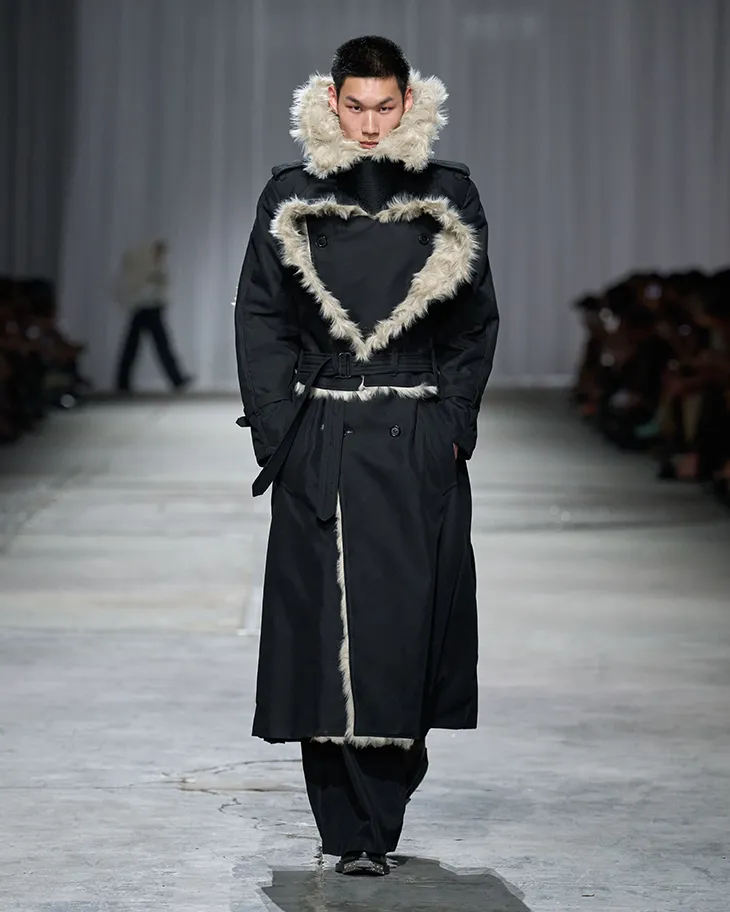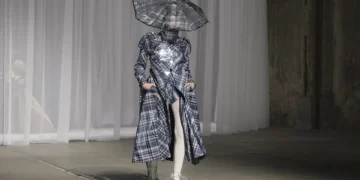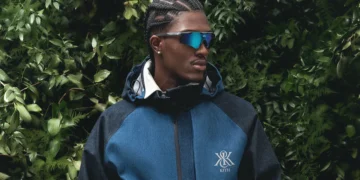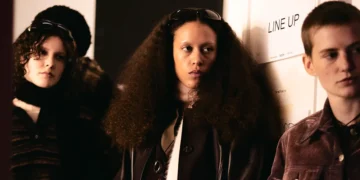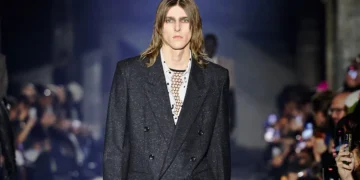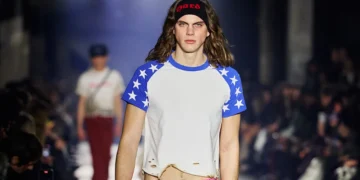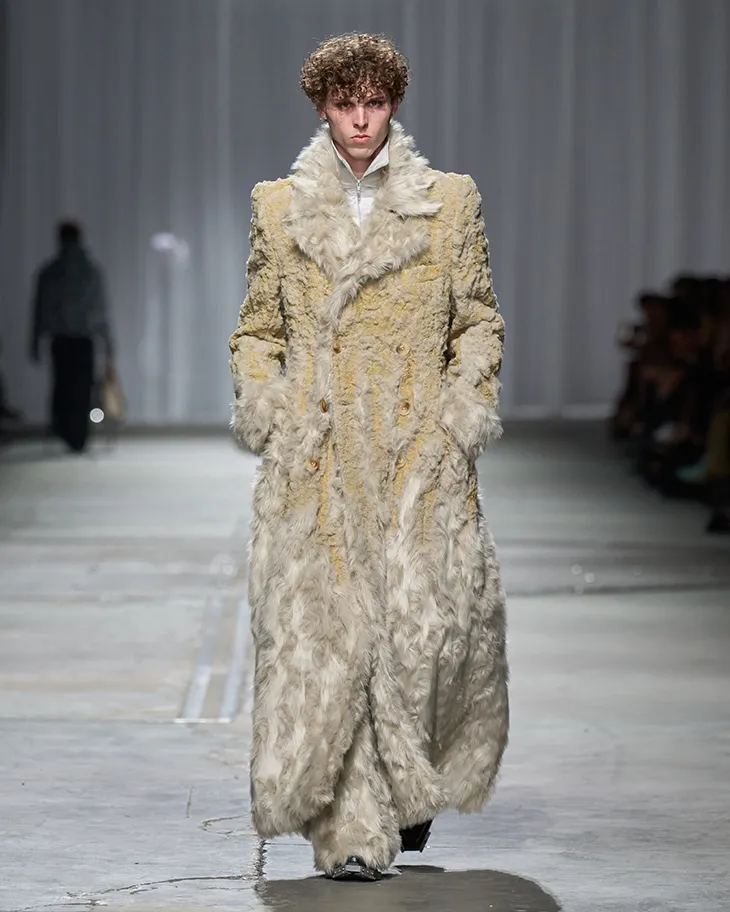
Twenty emerging designers from seventeen countries presented their final collections at Florence’s Stazione Leopolda on June 16, 2025, marking the culmination of four years of intensive study at Polimoda fashion school. The Polimoda Graduate Show 2025 featured over one hundred looks that reflected personal narratives, cultural identity, and innovative design approaches.
The Event
The graduate presentation took place at 5 PM CET at Stazione Leopolda, with creative direction by Massimiliano Giornetti, styling by Serge Girardi, and sound design by Frédéric Sanchez. The event was live-streamed on Polimoda’s official channels in collaboration with Vogue Italia, reaching a global audience eager to discover tomorrow’s fashion voices.
A distinguished jury will select the “Best Collection 2025” winner, to be announced June 25. The panel includes Michèle Lamy (artist and Co-Founding Partner of Owenscorp), visual artists Luc Tuymans and Carla Arocha, Ahmad Daher (RTW Atelier Manager at Ferragamo), Tiziana Cardini (fashion critic for Vogue Runway), and Marco Rambaldi (Creative Director of his eponymous brand).
The show attracted personalities from entertainment and fashion, while international media partnerships with outlets including 1 Granary, Next Gen Magazine, and various content creators provided global exposure for the graduating class.
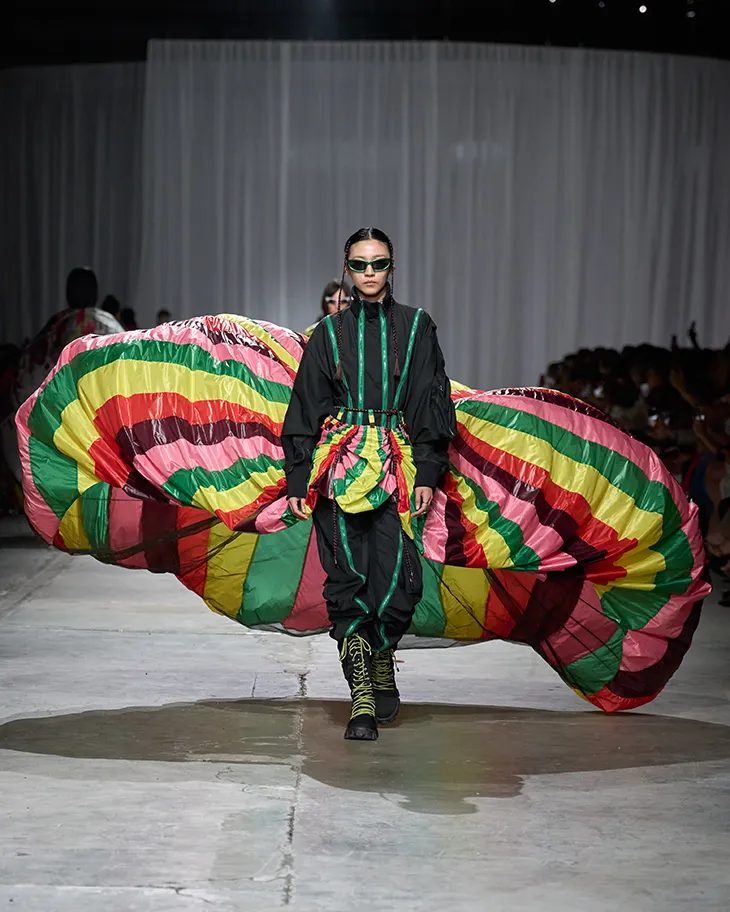
Elena Azeglio – Italy
Bonding in Violence
Azeglio’s collection addresses the challenges of urban living through the lens of protection and adaptation. Drawing inspiration from Gaspar Noé’s film “Enter the Void,” she creates contemporary armor for city dwellers using lightweight technical fabrics that flow in the wind, combined with intricate rope macramé and braiding techniques. The juxtaposition represents the balance between seeking freedom (like a parachute) and needing protection (like samurai armor) in chaotic urban environments.
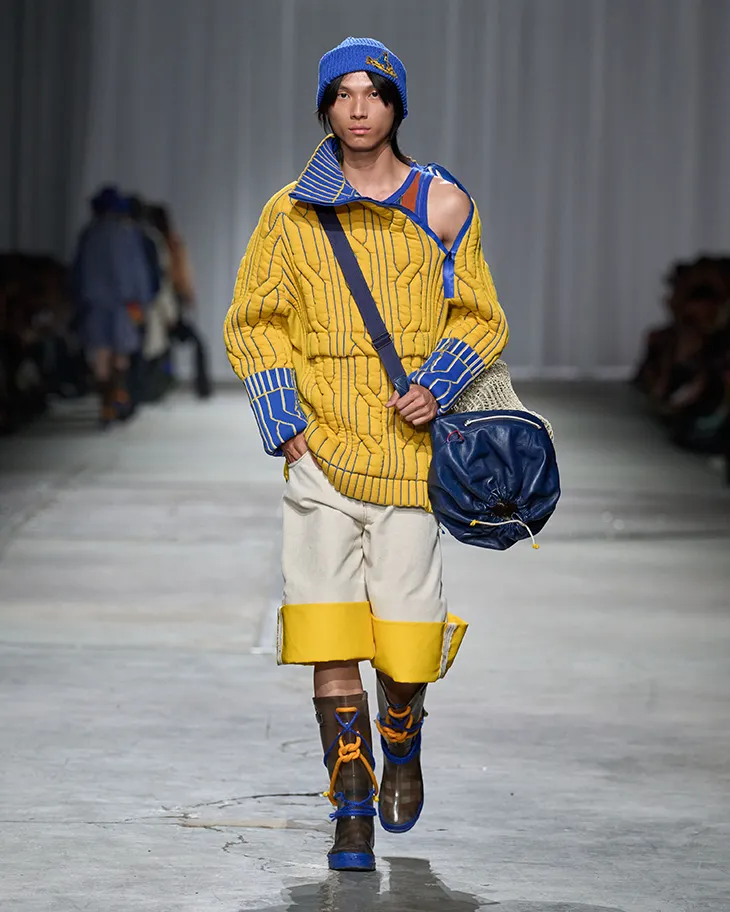
Veronica Bezzeccheri – Italy/Colombia
Ho perso mio padre
A playful homage to her retired father’s fishing adventures, this collection emerged from summers in Sirolo where Bezzeccheri watched her father’s comically unsuccessful fishing attempts. The narrative imagines him finally catching something unexpected – a rubber duck – which inspired her to merge the curved, glossy aesthetic of bathroom tiles with vintage fisherman’s clothing. She combines classic workwear fabrics with rubberized materials and bonding techniques that create unexpected textures and tactile experiences.
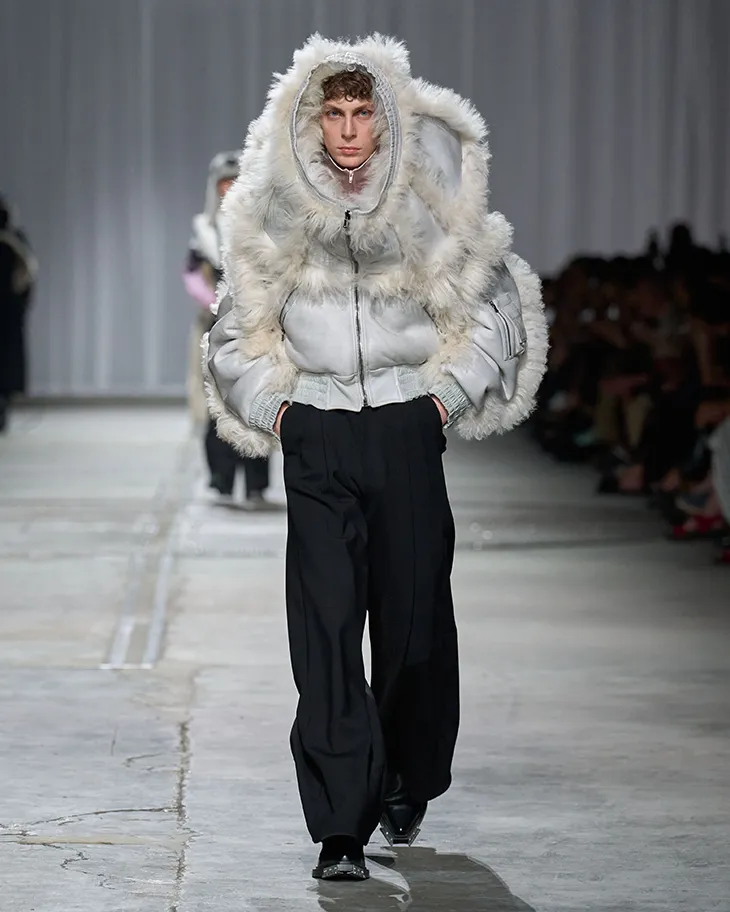
Nansen Capici – Italy
Silenzio Bianco
Named after Norwegian explorer Fridtjof Nansen, this collection represents a personal quest for authenticity through metaphorical Arctic exploration. Capici draws from both his family’s design heritage and Nansen’s expedition gear, reinterpreting vintage skiwear through a tailored lens. The silhouettes reference Philippe Starck’s product design aesthetic, combining traditional menswear codes with technical sportswear elements. The color palette moves from cool Arctic tones to warmer hues that suggest life within seemingly barren landscapes.
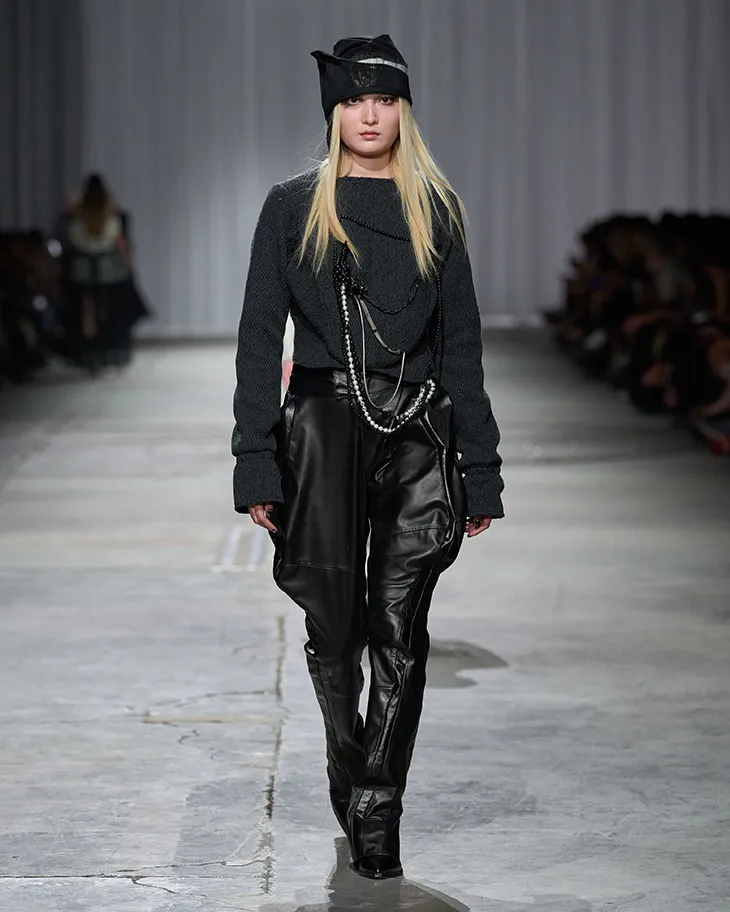
Grigory Fedenko – Russia/Israel
Rise and Fall
Fedenko’s meditation on power draws from two historical sources: 20th-century oil rigs and workers, and the fall of the Russian Empire and Romanov family. The collection explores how petrol and heavy machinery fueled industrialization and wealth accumulation, contrasting this with military status as the highest achievement during imperial collapse. He uses rough felted wools and leathers alongside synthetic materials with various finishes, where organic materials represent brutal power while vinyl-treated nylon gabardines evoke petrol stains and inner corruption.
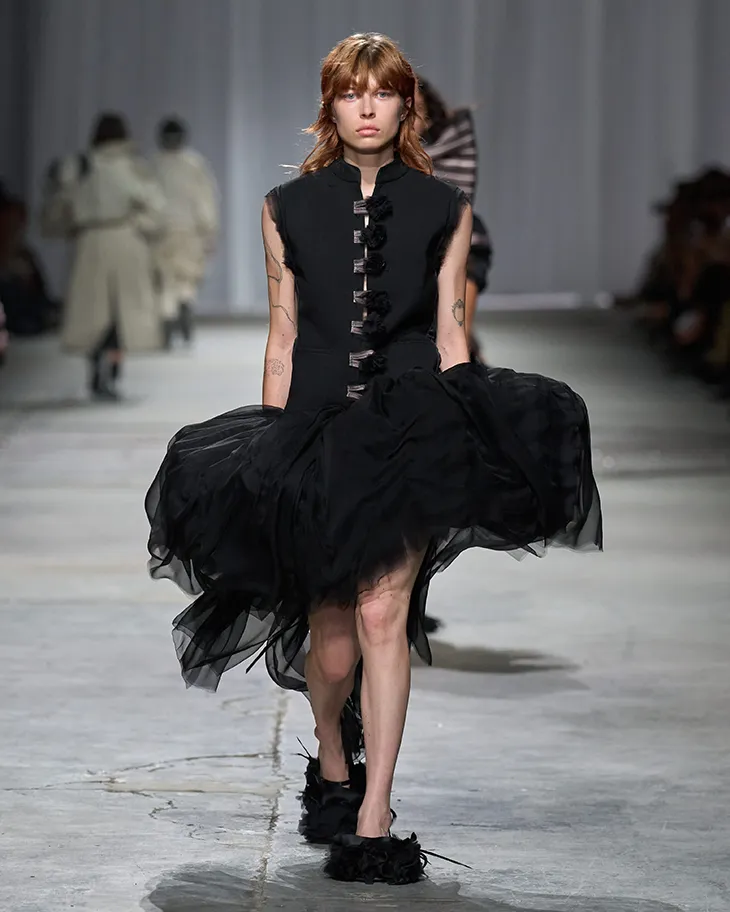
Chloe Geyer – South Africa
Glen Avenue
This collection springs from childhood memories of playing in a forest across from Geyer’s family home. She channels the nostalgia of hiding in tents, playing with leaves, and spending time with her father through a lens of circus-inspired whimsy. Using sheer fabrics like silk and cotton with deliberately raw edges and frays, she incorporates feathers and playful motifs including polka dots, stripes, and ruffles to capture the naivety and wonder of childhood forest adventures.
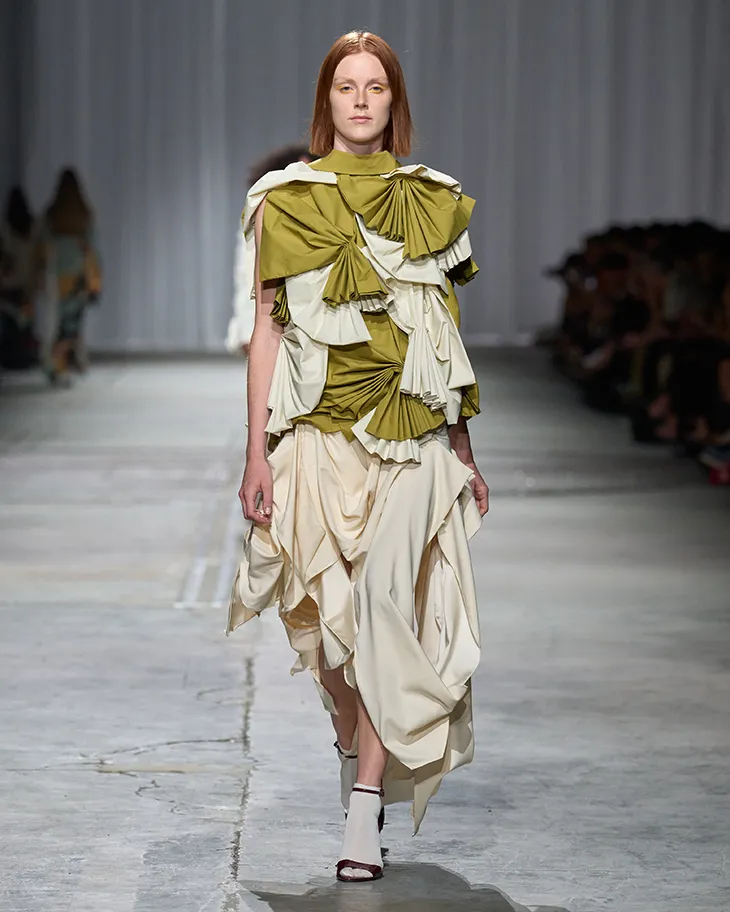
Naomi Guzman Doran – Mexico/Japan/Malaysia
LA COLD STARE
Growing up Mexican in Japan, Guzman Doran experienced multiple cultural ceremonies including the Japanese coming-of-age ceremony (Seijin Shiki) and Mexican quinceañera traditions. Her collection fuses these experiences, taking shapes from the specific kimono she wore at Seijin Shiki and incorporating vibrant Mexican-inspired colors. The result creates a sophisticated yet playful fusion that expresses the complexity of bicultural identity and the beauty found in cultural intersection.
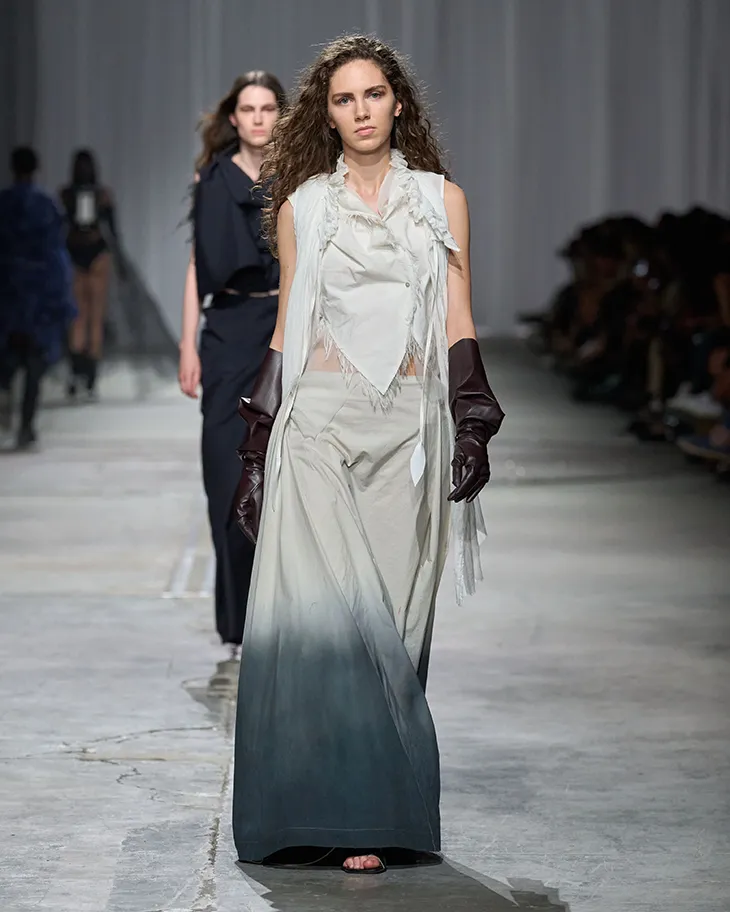
Huang Ying (Viktória) – Hungary/China
Under the Plum Blossom Tree
A tribute to maternal sacrifice and strength, this collection emerged from Huang Ying’s summer return to China and discovery of her mother’s pre-motherhood life. Learning about her mother’s journey – from vibrant young woman to single parent enduring abuse and health struggles – inspired garments that honor resilience and beauty. She uses wool felt capes for maternal protection, sheer silks that suggest falling petals, and leather with silver hardware to represent strength, creating pieces that celebrate her mother’s transition from physical labor to working as a florist.
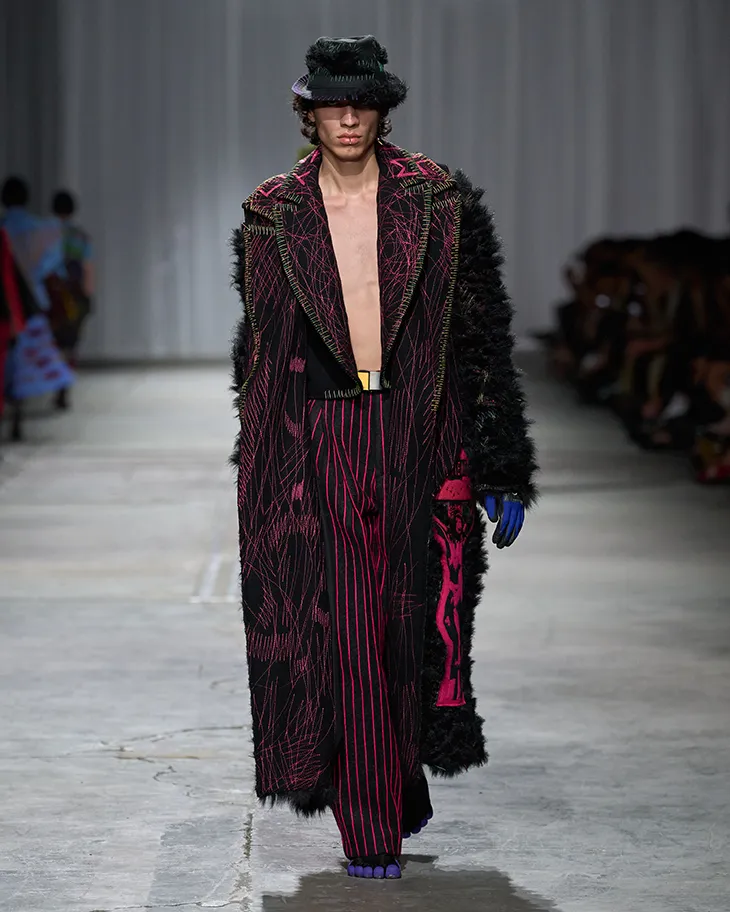
Leonardo Iori – Italy
Sapiens – From Monkey To Monkey
Iori’s provocative collection examines the animal instincts that persist in human behavior, particularly among high society. Using the ape as a symbol to compare what has and hasn’t evolved from our ancestors, he questions whether true humanity exists in humans. The collection deliberately contrasts formal fabrics and silhouettes with aggressive fabric manipulations and fur applications, suggesting that no amount of refined clothing can completely conceal our primal nature.
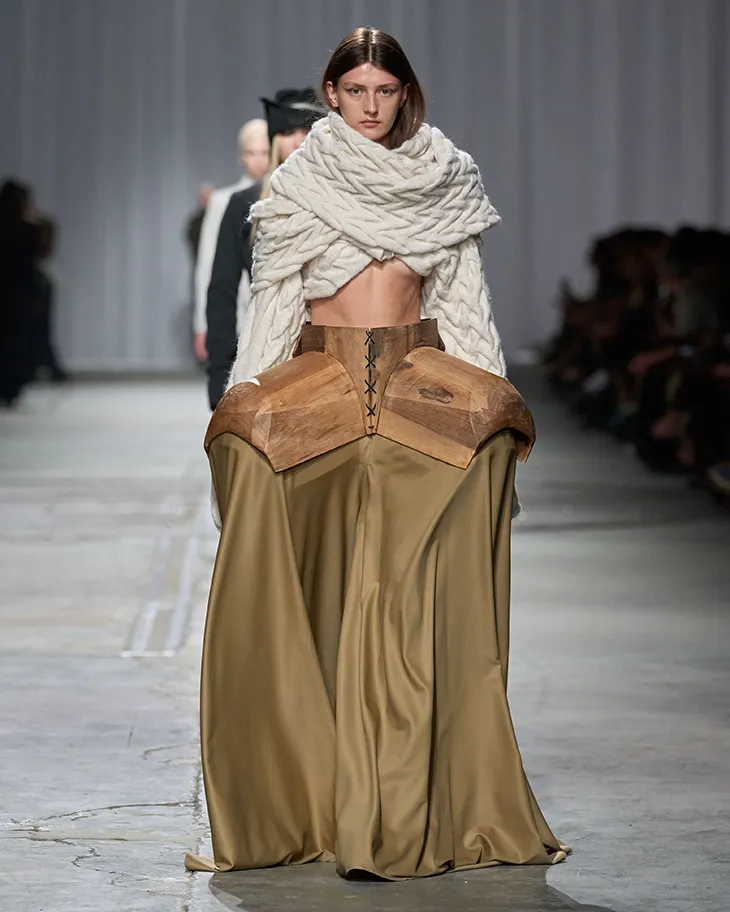
Derin Kemer – Turkey
bitch boss
Inspired by her single mother’s strength in male-dominated industries, Kemer creates powerful silhouettes that command presence without sacrificing femininity. The collection features oversized shoulders and broad hip structures that reference classical male forms while maintaining sex appeal and day-to-night versatility. A unique element is the incorporation of walnut wood, inspired by her mother’s art collection including a prized wooden door from an Ottoman palace, representing the strength and cultural richness her mother brought to their home.
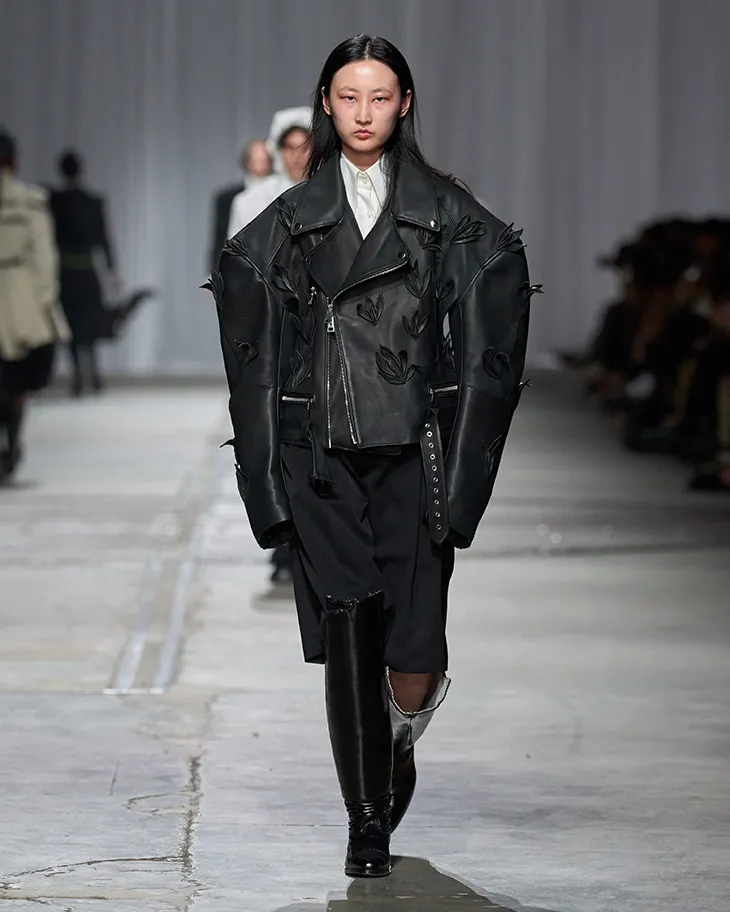
Mandula Maczkó – Hungary
Dear Roots
Maczkó explores the contrast between Hungary’s rural peasant traditions and its folk opulence, creating garments that bridge village and city life. The collection incorporates elements from humble rural origins – hand-woven fabrics, earthy tones, simple silhouettes – while adding luxurious touches through intricate embroidery, plush textures, and refined tailoring. This fusion of heritage and luxury reflects her personal connection to Hungarian craftsmanship while addressing contemporary urban living.
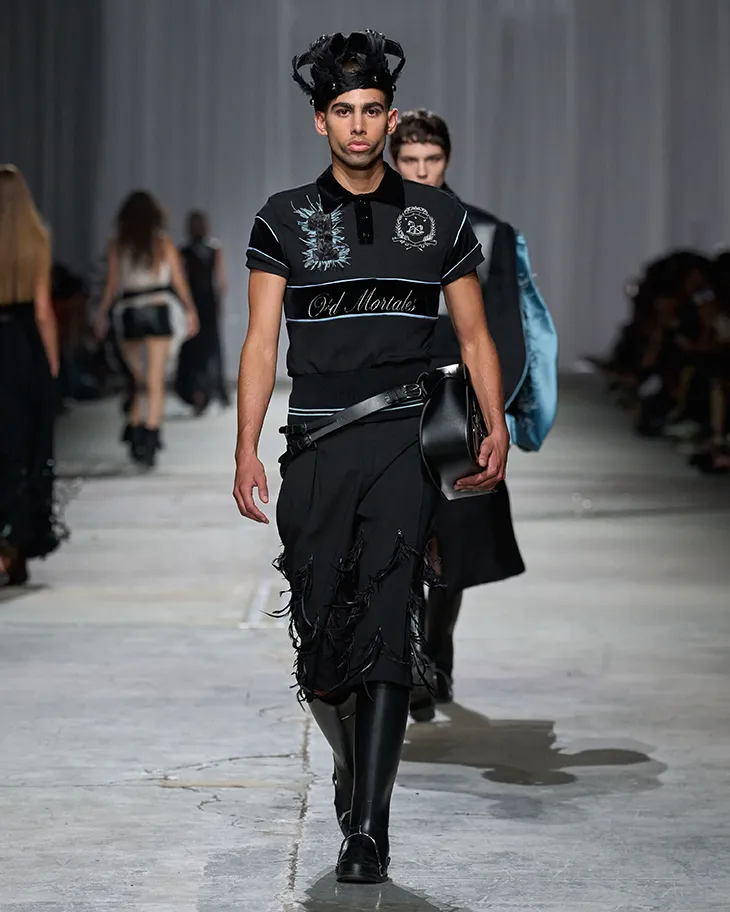
Keila Melany Mirmina – Argentina
Oíd Mortales
Drawing from her own experience growing up in a dangerous Buenos Aires suburb, Mirmina creates a narrative about social mobility and class critique. Her collection follows a rebellious boy who moves from a small town to privileged Buenos Aires, attempting to infiltrate high society through participation in elite activities like polo. The garments mix gaucho lifestyle elements with refined tailoring, using materials like wool, velvet, real feathers, and leather to create sophisticated pieces with an underlying rebellious attitude, complete with “Winner Rosettes” that assert dominance.
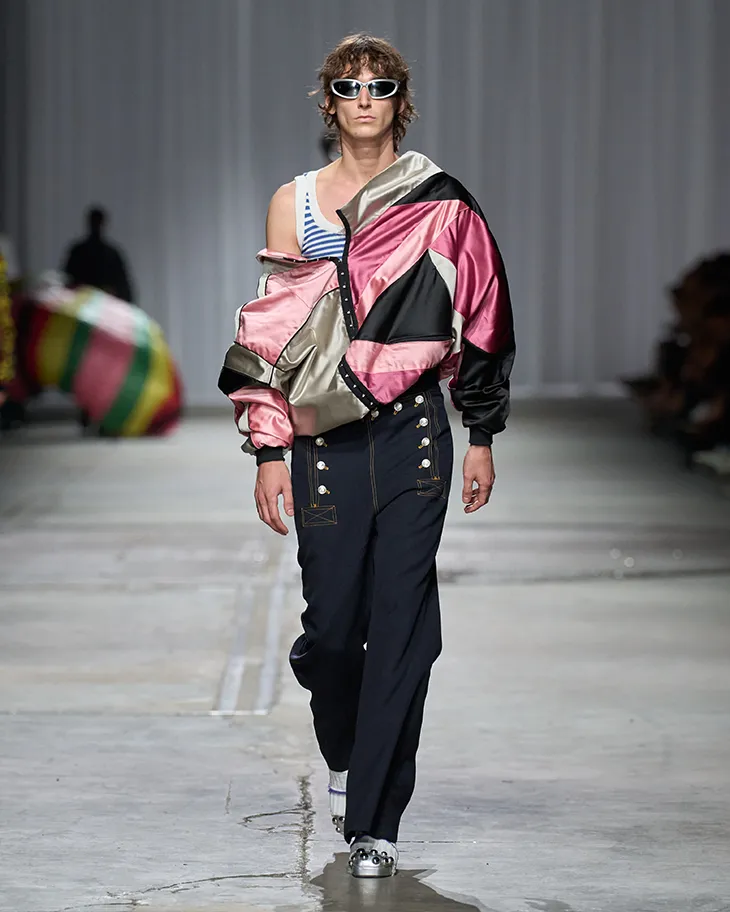
Filippo Montanini – Italy
Riccione: sailors and ravers
Montanini’s collection celebrates the freedom he feels in Riccione, where his feminine side “Filippa” emerges most naturally. The narrative follows a sailor love story set against the backdrop of disco culture, representing his fluid approach to sexuality and gender identity. He deliberately creates chaos by clashing materials – laces with silk satins, shiny coated denims with white cotton gabardines – to visualize the intersection of his three worlds: feminine expression, techno culture, and nautical romance.
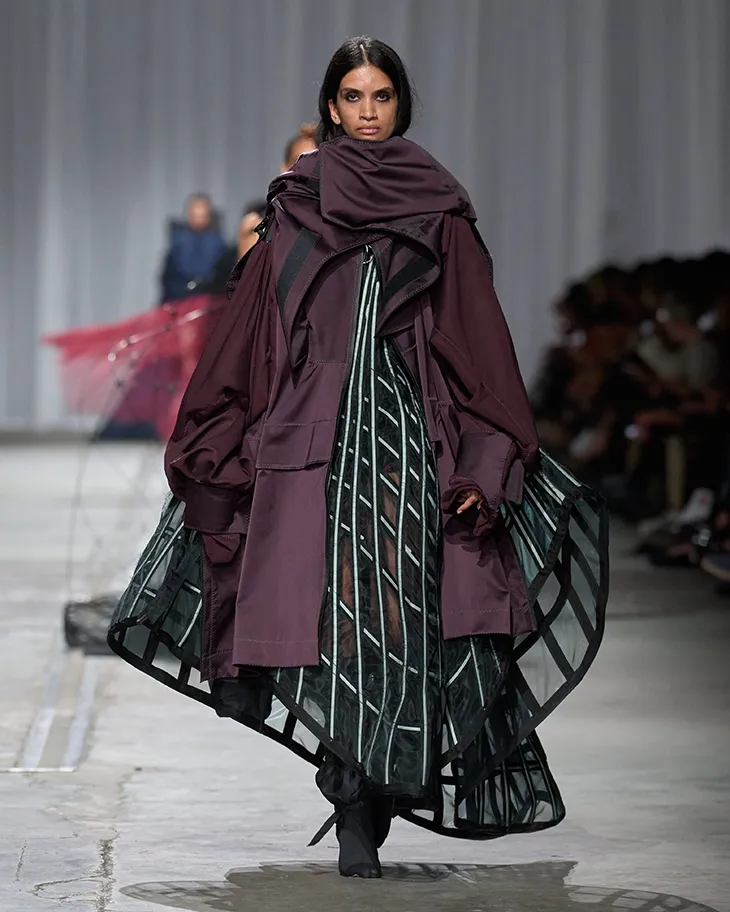
Sophia Marais Ostervold – USA/Norway
GOTHIC SAILORS
As a competitive sailor, Ostervold noticed how masculine and unfeminine sailing gear tends to be, despite the spiritual and dangerous nature of extreme water sports. Her collection combines the technical requirements of offshore racing gear with Gothic architectural inspiration, creating feminine alternatives to traditional sailing clothing. She uses waterproof technical fabrics alongside sheer materials and lace, incorporating structural elements like stainless steel pulleys, fiberglass wire, and nylon cording to merge the robust framework of boats with ornate Gothic details.
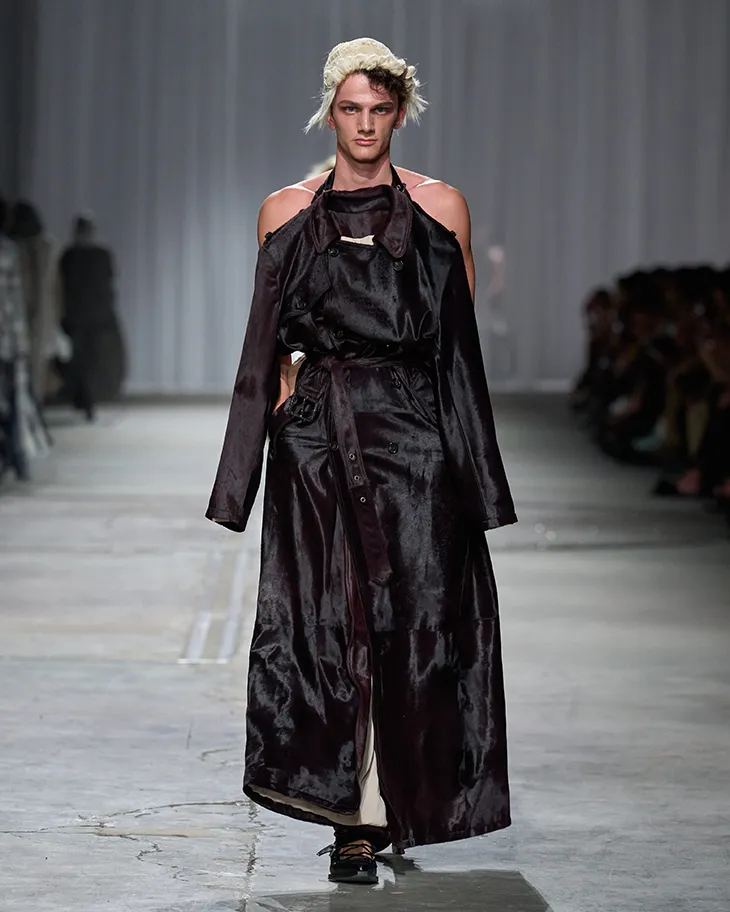
Samuele Pampaloni – Italy
for the boys
Pampaloni’s collection emerged from a personal experience of online humiliation when critics called his menswear approach “too feminine.” Drawing connections to Pasolini’s “Salò,” he explores themes of power, control, and vulnerability through fashion. The collection contrasts military menswear’s structured rigidity with the delicate, form-fitting designs of lingerie, using heavy cottons and canvas alongside mesh, silk, and lace. The somber palette of deep greens, grays, and blacks contrasts with softer pinks and whites, creating tension between authority and vulnerability.
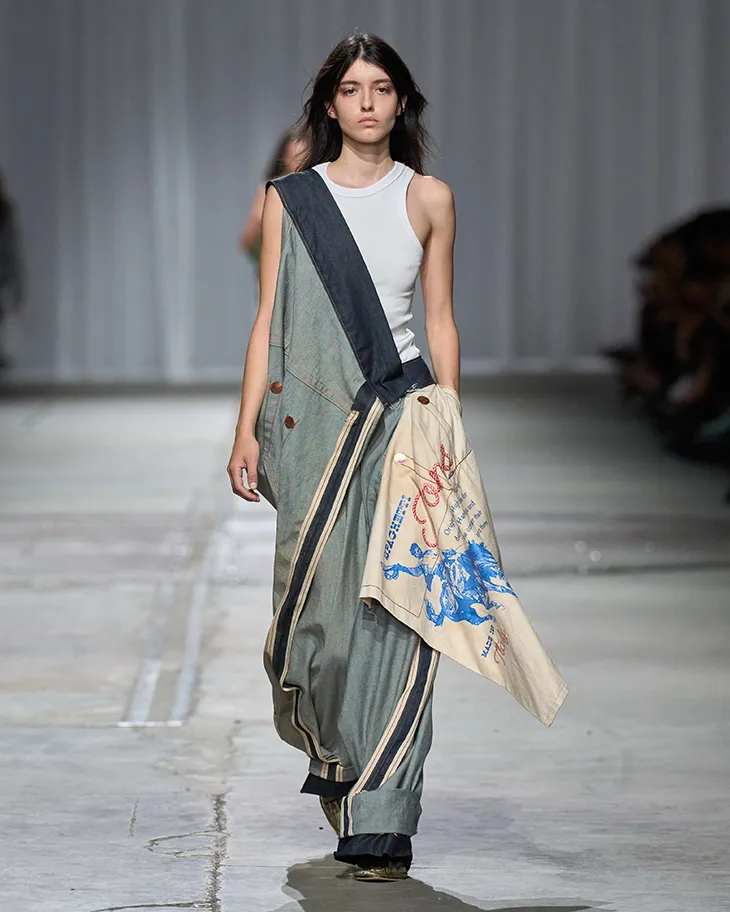
Joseph Thomas Prince – USA
Homecoming
A nostalgic return to Prince’s late grandparents’ farm in the rural western United States inspired this collection about honoring the past while remaining true to present identity. The garments evoke specific memories – tire swings, wheel lines, plastic-covered sofas – through carefully chosen materials including burlap potato sacks, beautiful velvet covered in plastic, and natural silk so light it suggests wheat fields dancing in the wind. The collection processes the difference between childhood memories and adult reality.
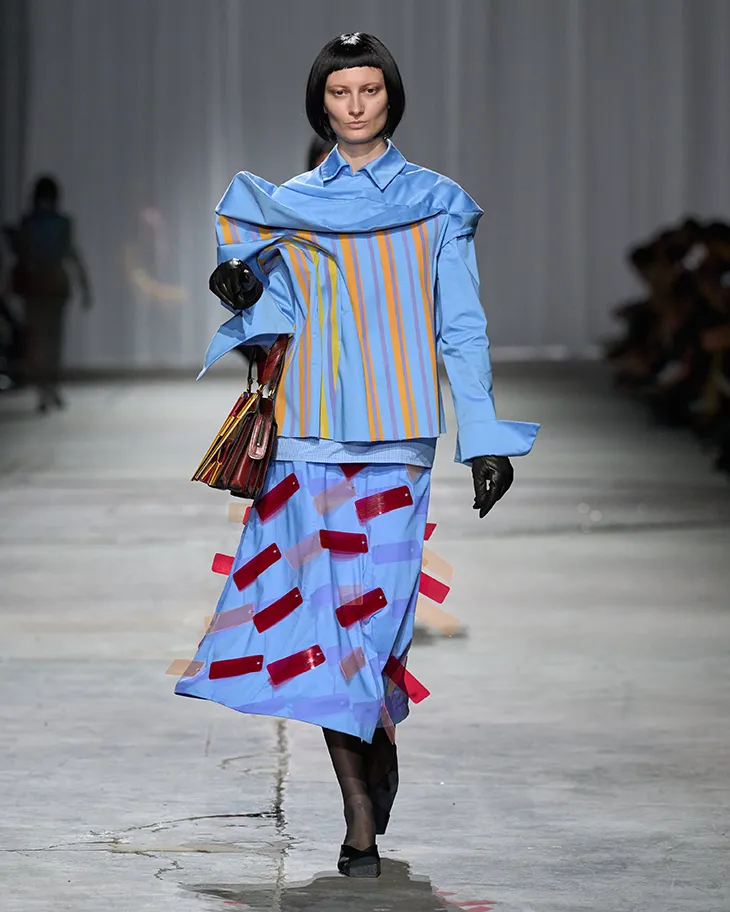
Eseniia Rybnikova – Russia
The Architect
Inspired by George Orwell’s “1984,” Rybnikova’s collection explores the concept that every person is the architect of their own life. She sees both Winston and Big Brother as architects – one building a world of love, the other of tyranny. Her muse is an ambitious, visionary woman who experiments like a scientist, building her reality from imagination. The shapes reference brutalist architecture and Frank Gehry’s work, featuring strong geometric forms layered over everyday garments, combined with artificial elements like plastic embroidery, colored glass, and mosaic to create tension between cold structure and vibrant soul.
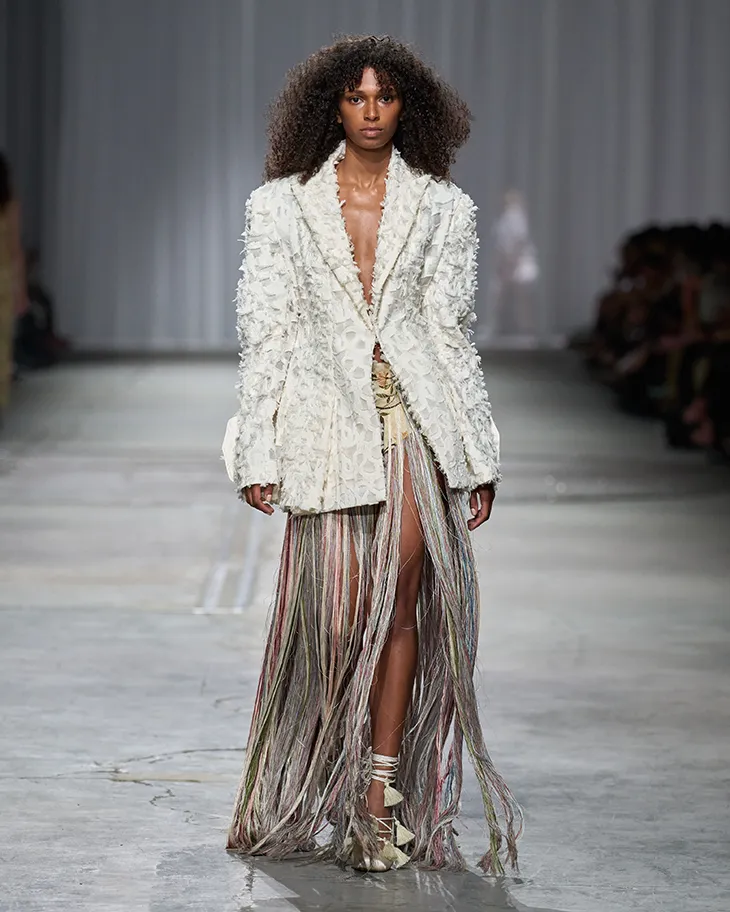
Farnia Salim – Iran
The In-Between Homes
Salim’s collection processes the experience of living between two contrasting worlds – feeling restricted in Iran despite considering it home, while finding freedom abroad. The designs create a space where she can merge both parts of her identity, celebrating Persian cultural richness while expressing personal freedom. Inspired by Qajar dynasty women’s clothing with playful twists and subtle menswear closures, she uses fabric manipulation techniques like fraying and fringe to translate the push and pull between freedom and control through vibrant pinks, reds, blues, and greens.
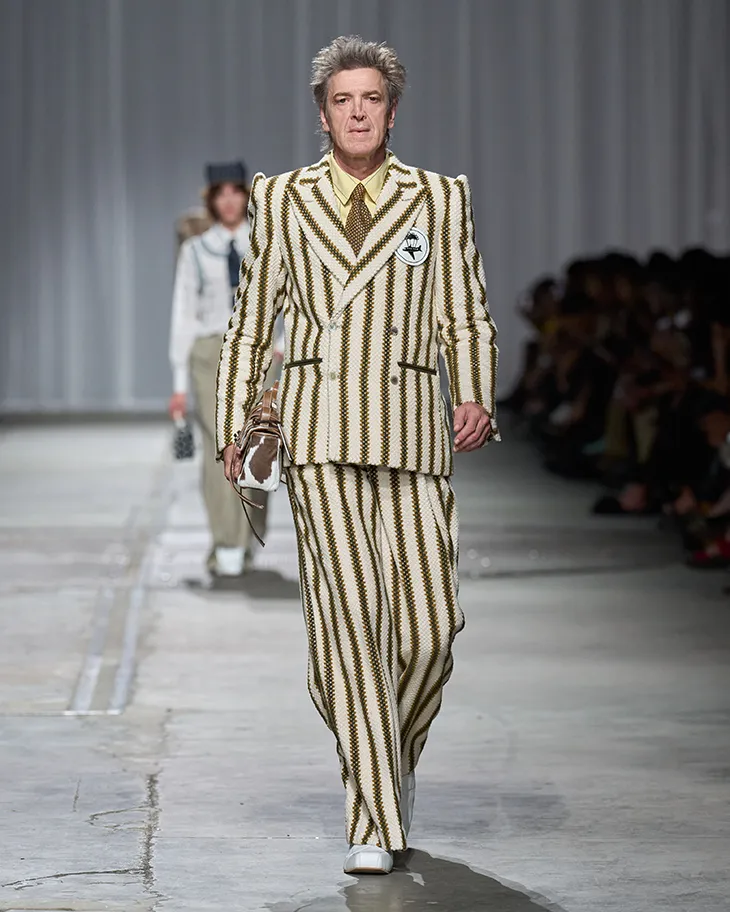
Sofia Sapena – Paraguay
A Deadly Occasion
Sapena’s collection questions contemporary casualness through her grandfather’s critical perspective on modern air travel. Imagining her lawyer-suited grandfather asking “Would you wear that when the airplane just might fall?”, she creates a tragicomedy that contrasts past formality with present comfort. The collection combines classic natural fibers from her grandfather’s wardrobe – poplin cotton shirts, wool trousers and jackets – with unexpected elements like towels cut into suits and corded stripes reminiscent of ribbed plastic luggage.
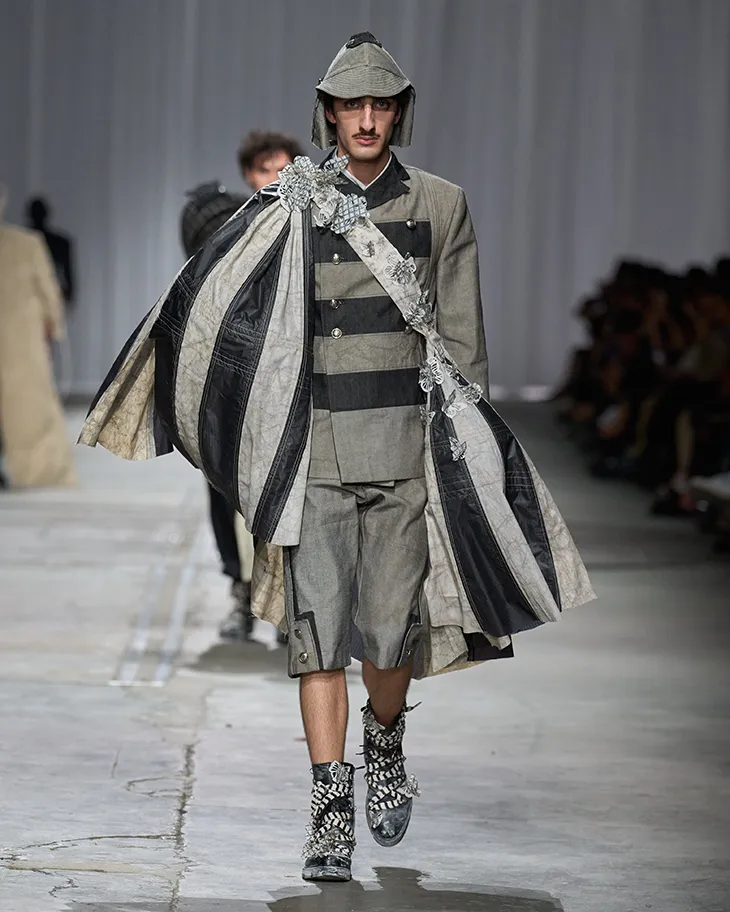
Isabella Valdez – Peru
Nasty Child
Having moved abroad since age 14 and lived in four different countries, Valdez explores immigration through the lens of childhood wonder and playfulness. Her collection features “The Explorer,” a character who adventurously travels the world seeking home while getting to know it. She merges organic fabrics like cotton, wool, and linen with synthetic upcycled sailing materials, combining historical children’s wear inspiration from the 19th century with technical sailing gear to represent oceanic exploration and the search for belonging.
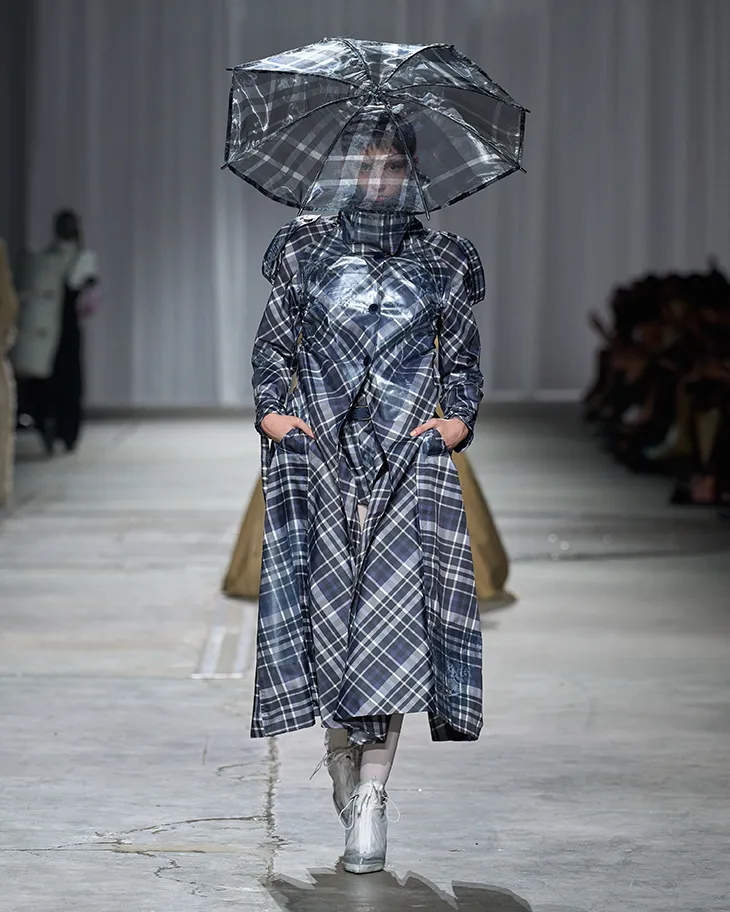
Amina Vanneling – Sweden/Iran
Quiet One-Sided Rain
Vanneling’s collection tells the story of six strangers caught in rain during a September afternoon in Gothenburg, each person’s reaction revealing deeper aspects of personality and resilience. The collection explores how individuals face shared circumstances from different psychological places, using fashion to tell subtle stories about human behavior. Drawing from her own immigration experience arriving in Gothenburg in 1999, she creates silhouettes ranging from oversized and heavily layered to minimal and effortless, using fabric choices to reflect each character’s preparation level and approach to life’s unexpected challenges.
